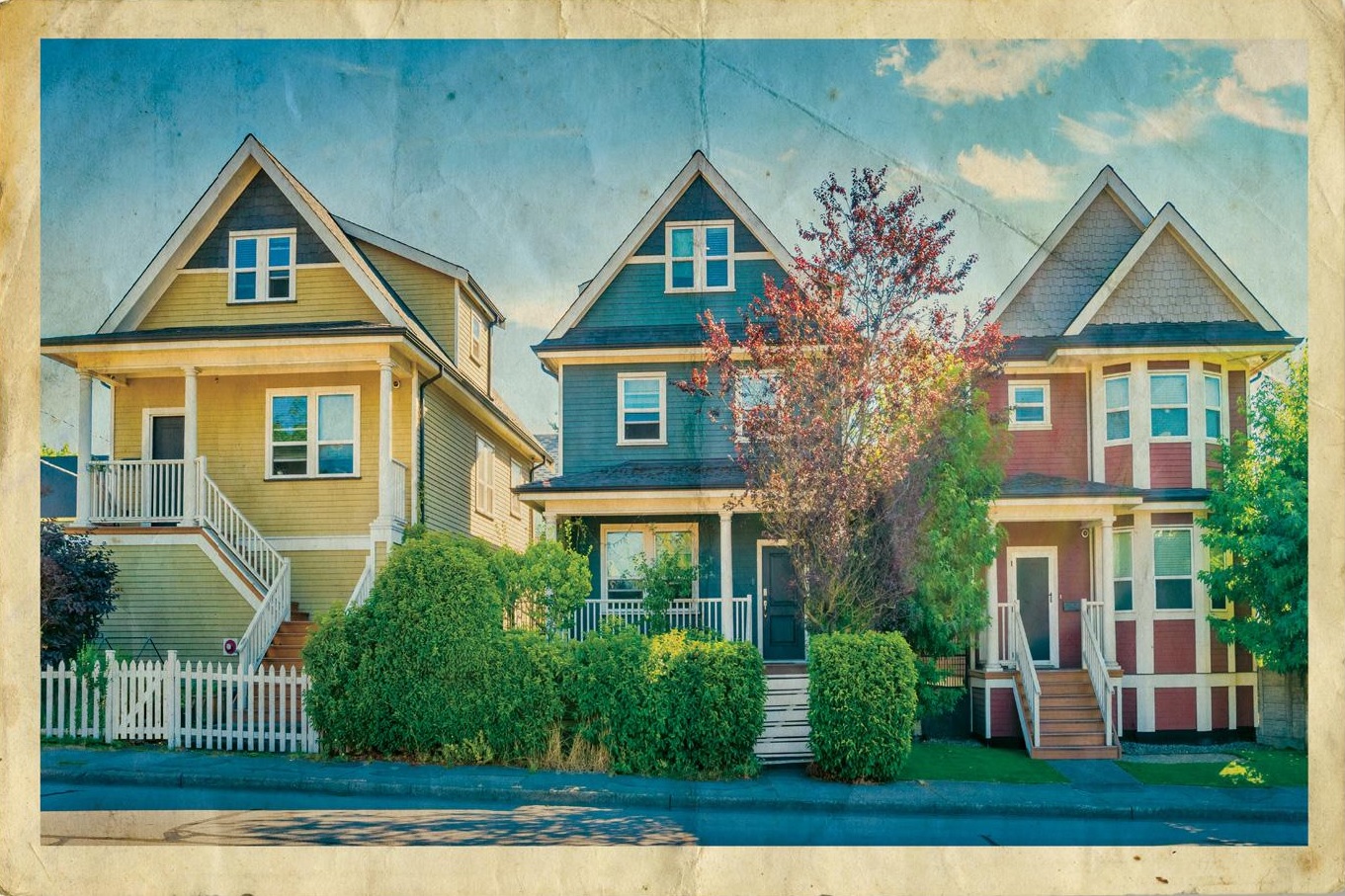Versuchen GOLD - Frei
THE END OF HOMEOWNERSHIP
Maclean's
|July 2023
For generations, middle-class Canadians have been sold on the promise of homeownership. The promise was always flawed. Today it’s simply broken.

I WAS BORN IN Vancouver in 1987, and I’ve lived here nearly all my life. Anyone of my generation who grew up in this city spent their youth hearing constantly about the twin dangers that imperilled our future: a city-annihilating earthquake, and the always-rising cost of housing. Either might one day make living here impossible. Both felt vast and inevitable, forces beyond our control. So we carried on in the face of disaster, doing our best to ignore it.
In 1992, the year I did my first earth-quake drill in kindergarten, Vancouver overtook Toronto as the most expensive housing market in the country. After finishing an undergraduate degree in Victoria, I returned in 2009 and spent my 20s moving from one rental to another— seven apartments, six neighbourhoods and five roommates in all. Fourteen years ago, it was still possible to find an apartment for $650 or $700 a month, especially if you were willing, as I was, to tolerate a gas leak, a creepy landlord or a solarium repurposed as a bedroom in exchange for below-market rent.
A few of my friends even made the leap into ownership in their 20s, almost always with the help of family. In the early 2010s, you could get a small one-bedroom or a studio apartment for $300,000 or so. That was a significant downgrade from my parents’ generation, for whom an equivalent inflation-adjusted sum would have bought a single-family home nearly anywhere in the city. But it was a foothold on the property ladder, and I believed then that it would be possible for all of us to do the same, to make our homes in this city we loved. We would, somehow, follow the upward trajectory of previous generations, whose rising incomes allowed them to graduate to homeownership in due course.
Diese Geschichte stammt aus der July 2023-Ausgabe von Maclean's.
Abonnieren Sie Magzter GOLD, um auf Tausende kuratierter Premium-Geschichten und über 9.000 Zeitschriften und Zeitungen zuzugreifen.
Sie sind bereits Abonnent? Anmelden
WEITERE GESCHICHTEN VON Maclean's

Maclean's
The University's Post-Book Future
Students don't want to read novels anymore. I've filled my English-lit syllabus with movies to help them learn anyway.
4 mins
January / February 2026

Maclean's
Buy Canadian Will Transform Supply Chains
Trump's tariff chaos will prompt local food producers to expand at record speed
3 mins
January / February 2026
Maclean's
The Rise of the Micro-Restaurant
Tiny establishments like Yan Dining Room, my 26-seater in Toronto, are feeding Canadians' appetites for something new
4 mins
January / February 2026

Maclean's
Education
The international-student shortfall will worsen schools' financial woes. Donald Trump's assault on academia will hinder and help Canadian campuses. And school boards will scramble to fill teacher shortages.
4 mins
January / February 2026

Maclean's
Food
Buy Canadian fever will give us more B.C. wine, Ontario ice cream and locally grown winter strawberries-while Indigenous cuisine will have its overdue moment
4 mins
January / February 2026

Maclean's
The Adult Rec-Sports Boom
Fed up with phones, Canadians are making friends on the field
4 mins
January / February 2026
Maclean's
Concert Tickets Might Finally Get Cheaper
In 2026, we'll need fewer stadium extravaganzas and more intimate shows at small venues
3 mins
January / February 2026

Maclean's
Climate
Wildfire displacement will redraw the map, EV adoption will decelerate and Canada will miss its emissions targets. Throughout it all, Mark Carney will put climate on the backburner.
4 mins
January / February 2026

Maclean's
Canada's China Policy Will Be Decided in Washington
If Trump talks fail, Canada could look toward Beijing
3 mins
January / February 2026

Maclean's
Justice for Stablecoins
For years, people thought fiat-backed crypto was all hype, no value. Now that the government's on board, Canadians should be too.
4 mins
January / February 2026
Translate
Change font size

